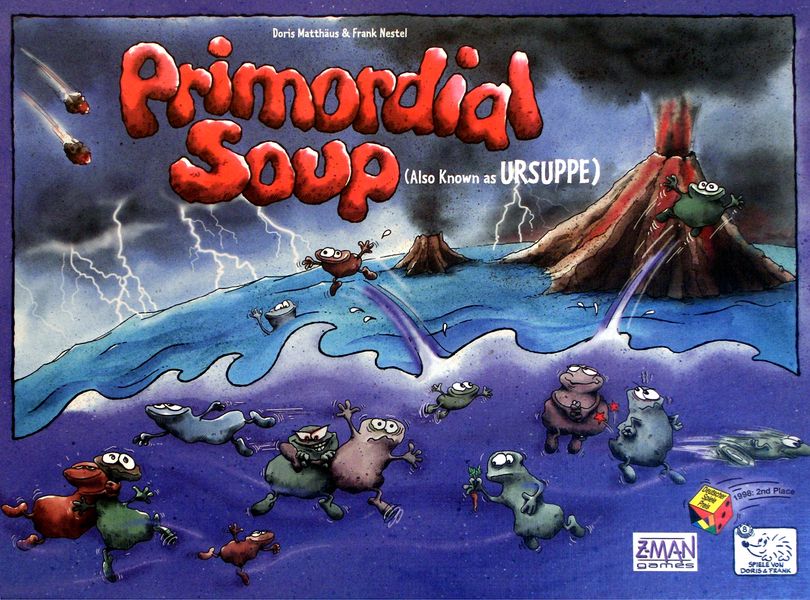Primordial Soup (1997) Board Game
Primordial Soup is a board game that was released in 1997 by designers Doris Matthäus and Frank Nestel. The game is set in a prehistoric world, where players take on the roles of primordial creatures competing for survival in a chaotic environment. With a mix of strategy and luck, players must navigate through the soup, evolving their creatures to adapt to the changing conditions and outsmart their opponents.
Game Components of Primordial Soup
How To Setup Primordial Soup
To set up Primordial Soup, players start by placing the game board in the middle of the playing area. Each player chooses a set of amoeba discs and places their score marker on the scoring track. The biological point tokens, damage markers, foodstuff cubes, gene cards, and environment cards are distributed according to the game rules. Setup typically takes around 10 minutes.
Gameplay Mechanics and Game Objective
– Each turn, players score points based on their amoeba population and genes.
– The game ends when a player reaches 42 points or when the last environment card is drawn.
Player Experience
Players guide a species of primitive amoeba through the primordial soup, managing their amoebas’ movement, feeding, and reproduction using biological points. The game’s ecosystem is dynamically balanced, where the survival of one species depends on the others. This interdependence makes the game highly interactive and strategic, as players must adapt to the actions of their opponents.
Pros
Cons
Personal Thoughts on Primordial Soup
Primordial Soup is ideal for players who enjoy strategic games with deep mechanics and a unique theme. It’s best suited for gamers who appreciate the complexity of managing an ecosystem and adapting to changing conditions. While it may not be the best fit for casual gamers due to its complexity and length, it is highly recommended for those looking for a challenging and engaging board game experience.
We are supported by our audience. When you purchase through links on our site, we may earn an affiliate commission, at no extra cost for you. Learn more.

